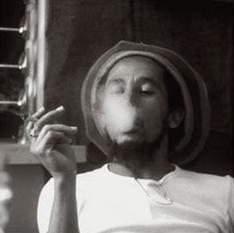Imagine all the people Sharing all the world
1/16/11
What is Rastafarian ?
The Rastafari movement or Rasta is a monotheistic, new religious movement that arose in a Christian culture in Jamaica in the 1930s.[1][2] Its adherents worship Haile Selassie I of Ethiopia, former Emperor of Ethiopia (1930–1936 and 1941–1974), as God incarnate, the Second Advent, and are known as Rastafarians, or Rastas. The movement is sometimes referred to as "Rastafarianism", but this term is considered derogatory and offensive by some Rastas, who dislike being labelled as an "ism".
The Rastafari movement encompasses themes such as the spiritual use of cannabisand the rejection of western society, called Babylon (from the metaphorical Babylon of the Christian New Testament.) It proclaims Africa (also "Zion") as the original birthplace of mankind, and embraces various Afrocentric social and political aspirations, such as the sociopolitical views and teachings of Jamaican publicist, organizer, and black nationalist Marcus Garvey (also often regarded as a prophet).
Rastafari is not a highly organized religion; it is a movement and an ideology. Many Rastas say that it is not a "religion" at all, but a "Way of Life” Most Rastas do not claim any sect or denomination, and thus encourage one another to find faith and inspiration within themselves, although some do identify strongly with one of the "mansions of Rastafari" — the three most prominent of these being the Nyahbinghi, the Bobo Ashanti and the Twelve Tribes of Israel.
The name Rastafari is taken from Ras Tafari, the pre-regnal title of Haile Selassie I, composed of Amharic Ras (literally "Head," an Ethiopian title equivalent to Duke), and Haile Selassie's pre-regnal given name, Tafari. Rastafari are generally distinguished for asserting the doctrine that Haile Selassie I, the former and final Emperor of Ethiopia, is another incarnation of the Christian God, called Jah They see Haile Selassie I as Jah or Jah Rastafari, who is the second coming of Jesus Christ onto the Earth.
Today, awareness of the Rastafari movement has spread throughout much of the world, largely through interest generated by reggae music. The most notable example is Jamaican singer/songwriter Bob Marley (died 1981). By 1997, there were around one million Rastafari faithful worldwide In the 2001 Jamaican census, 24,020 individuals (less than 1 percent of the population) identified themselves as Rastafarians Other sources have estimated that, in the 2000s, they formed "about 5 percent of the population" of Jamaica, or have conjectured that "there are perhaps as many as 100,000 Rastafarians in Jamaica".
Subscribe to:
Comments (Atom)
